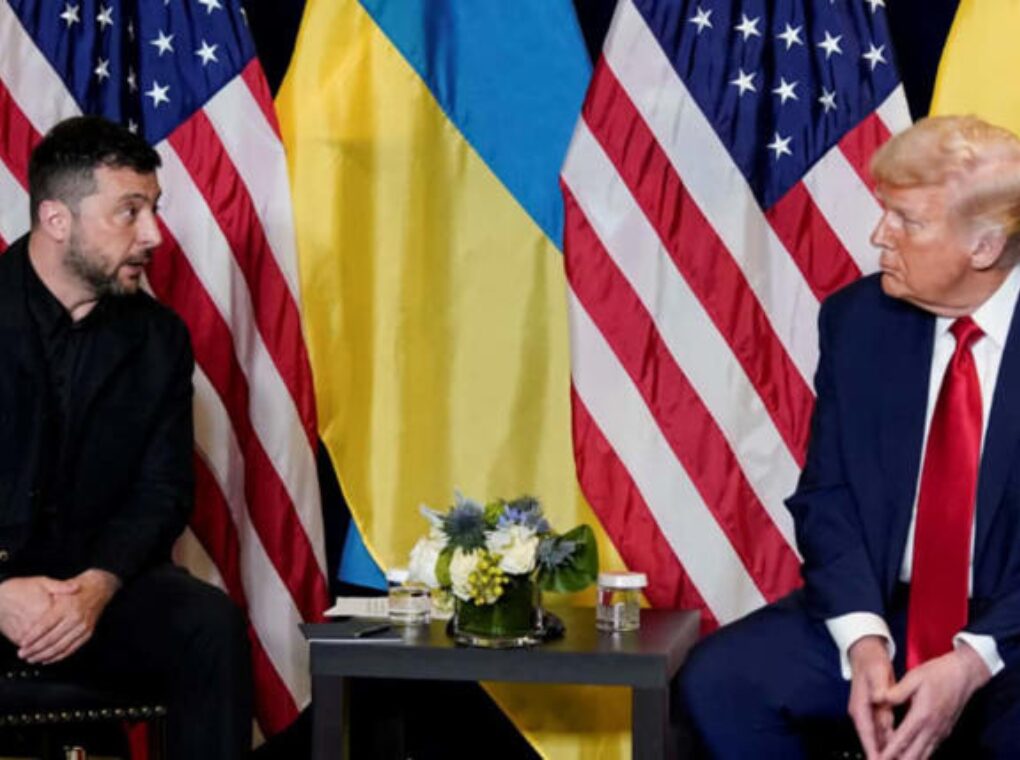The unexpected leak of President Donald Trump’s proposed Ukraine peace plan sent shockwaves across Europe, revealing deep fractures in transatlantic coordination and thrusting European leaders into frantic diplomatic manoeuvring. The episode highlighted Europe’s marginalisation in negotiations that directly shaped its own security, prompting a scramble to reclaim influence as the geopolitical landscape shifted under their feet.
A Leak That Blindsided Europe
The 28-point draft plan, first made public through media reports, reached European capitals before any formal communication from Washington. German Chancellor Friedrich Merz reportedly discovered the proposal not from diplomatic channels, but from a news headline. His office immediately rushed to establish contact with the White House, seeking clarification on a document that seemed to sharply diverge from long-standing Western policy.
According to reports, the plan offered significant concessions to Russia, including expanded territorial control and explicit limits on Ukraine’s sovereignty. It also barred Ukraine from future NATO membership — a stunning reversal of the alliance’s position. What alarmed European officials most was not just the content, but the clear indication that the negotiations had been conducted without their inclusion.
Senior European diplomats had been aware that the U.S. was drafting a proposal, but the leak made evident that Europe had been deliberately excluded from the substance of those discussions.
A Continent Left Out
The frustration in European capitals deepened when U.S. Army Secretary Daniel Driscoll allegedly defended Europe’s exclusion by claiming the diplomacy required fewer “cooks” and that European governments were “too close” to Ukraine to be objective. For European officials, the remarks underscored a dangerous shift: Washington was now reshaping Europe’s security architecture without the participation of its closest allies.
The timing of the leak compounded the sense of chaos. EU foreign ministers, already en route to a Brussels meeting, scrambled for information. Ukraine’s representative, Andrii Sybiha, could offer little clarity, admitting he had the same limited knowledge as his European counterparts. For both Ukraine and Europe, the leak introduced a new strategic dilemma.
A Difficult Choice for Kyiv and Europe
For Ukraine, Trump’s plan presented an existential quandary. Rejecting it outright could alienate Washington at a crucial moment in the war. Accepting it — or even appearing to endorse it — could mean embracing terms that severely compromised the nation’s territorial integrity and political independence. President Volodymyr Zelensky openly acknowledged the risk: Kyiv could lose either its dignity or its indispensable Western partner.
European governments faced a parallel dilemma. Opposing the plan too forcefully risked provoking the Trump administration, potentially sidelining Europe even more. Endorsing it would violate foundational principles such as the rejection of territorial changes by force and the defense of Ukraine’s sovereign choice to join NATO.
A Strategy of Engagement Emerges
At the G20 summit in South Africa, European leaders began converging on a pragmatic approach: engage, influence, and reshape — rather than reject — the U.S. proposal.
European Council President António Costa and European Commission chief Ursula von der Leyen coordinated a newly unified front. Leaders formulated three non-negotiable principles:
No territorial concessions imposed under duress
No externally imposed limits on Ukraine’s military capabilities
No decisions about European security made without Europe’s participation
A joint communiqué cautiously welcomed American efforts but emphasized the need for substantial revisions. Meanwhile, EU diplomats hurried to Geneva, where U.S. Secretary of State Marco Rubio was set to brief Ukrainian officials.
Europe Pushes Back — and Wins a Tactical Victory
Initially sidelined in Geneva, European envoys persisted until they secured a late-night meeting with Rubio’s team. Several officials say Rubio privately assured them that Europe would be included in decisions affecting its security. Publicly, he softened Washington’s tone, characterizing the plan as a “living, breathing document” — open to negotiation.
This shift provided much-needed relief in Brussels. Germany’s foreign minister described the weekend as a diplomatic “win,” though many acknowledged it was a fragile one.
Uncertainty Still Looms
Despite the temporary restoration of influence, Europe remains on uneasy footing. Divisions over future funding for Ukraine persist, and doubts linger over whether Washington will maintain its promise of inclusion. Moscow’s refusal to accept the leaked plan further complicates any momentum toward a cease-fire.
As Polish Prime Minister Donald Tusk cautioned, Europe must balance unity with pragmatism. Alienating the United States is not an option — but allowing the continent’s fate to be decided without its input is equally unacceptable.
The leaked peace plan may have exposed Europe’s vulnerabilities, but it also forced the continent to reassert its voice. Whether that renewed engagement endures remains the defining question for Europe’s future security.
